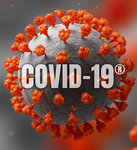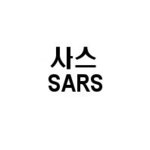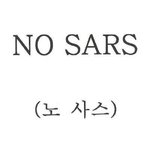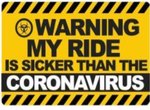






Coronavirus and COVID-19 are words that have become all too common around the world these past few months. With the COVID-19 pandemic causing millions of deaths and illnesses, drastically affecting economies, and uprooting people’s way of life, the subject has dominated the media, governments’ policy agendas, and conversations among friends and family. It has also been an issue for intellectual property (IP) offices around the world.
Indeed, trademark applications comprising the terms “coronavirus,” “COVID-19,” and other words associated with the pandemic have skyrocketed over the past few months. This kind of phenomenon is not new. IP offices must often deal with applications relating to major events that somehow capture the public’s attention. Examples include attempts to trademark the following: SEPTEMBER 11, 2001 and 09-11-01, after the terrorist attacks in the United States on said date (including an application filed before the U.S. Patent and Trademark Office (USPTO) on the same exact day); FLIGHT 93, in reference to the flight that was hijacked on September 11 and which crashed into an open field after passengers and crew tried to regain control of the aircraft; JE SUIS CHARLIE, in response to the shooting at the offices of the French satirical magazine Charlie Hebdo; and COVFEFE, following the U.S. president’s accidental tweet that went viral in May 2017.
Like COVID-19, which is linked to the SARS-CoV-2 virus, the SARS outbreak from the early 2000s, which was caused by another coronavirus (SARS-CoV-1), also triggered trademark applications. In 2003, various IP offices received applications for trademarks relating to this disease, such as images one and two in South Korea, ANTI-SARS and KISS ME, I’M SARS FREE in the United States, and SARS in Turkey.
The trademarks filed in light of the current health crisis range from simply CORONAVIRUS and COVID-19 to more creative signs like EVEN HATERS HATE CORONA VIRUS, COVID PRO QUO, and COVID KID.
Some of the phrases may be condemned as distasteful or inappropriate. An interesting question to be asked here is: can they be granted trademark protection? Each IP office will make its own determination after reviewing applications on grounds of applicable regulation and local practice; however, it is possible to analyze the applied-for trademarks based on general principles that are reflected in most trademark laws worldwide, especially the prohibitions relating to:
Lack of Distinctiveness
One of the main functions of a trademark is to distinguish the trademark owner’s products and services from those of its competitors. As such, trademarks help consumers identify the commercial origin of products and services and ultimately guide their purchasing decisions.
Therefore, in order to be eligible for trademark protection, a sign must be distinctive, meaning that it must be capable of distinguishing itself from similar products and services offered by different parties.
The distinctiveness requirement is of utmost importance because it prevents the registration (appropriation by only one person) of signs that should remain available for anyone’s use. These signs are generally referred to as generic terms and descriptive signs. If one could hold exclusive rights over such a sign, the registrant would be unjustifiably interfering in the public domain, with the approval of the state. This kind of misuse of trademark law can be especially detrimental to society in the medical field, given the crucial role that brands play in informing consumers about medicines, medical equipment, and services.
An interesting case dealing with names of medical conditions concerned a U.S. registration in Class 35 for CONGENITAL DIAPHRAGMATIC HERNIA AWARENESS, in the name of a nonprofit organization, covering promoting public awareness of congenital diaphragmatic hernia. Notwithstanding that this trademark was registered in the Supplemental Register (a specific register at the USPTO for descriptive trademarks that are capable of becoming distinctive), another nonprofit organization that advocates for awareness of congenital diaphragmatic hernia petitioned to cancel the registration. Among other claims, the petitioner asserted that it had been threatened with lawsuits by the registrant and that the registration for CONGENITAL DIAPHRAGMATIC HERNIA AWARENESS would be detrimental to the petitioner’s activities. The registrant rebutted the claims, but eventually decided to withdraw its registration.
It is no surprise that trademark applications bearing the name of a worldwide pandemic might raise eyebrows. Are these applicants trying to unduly obtain exclusive rights over a name that could be essential for other competitors in the market? The short answer is: it depends. If the sign consists solely of “coronavirus” and “COVID-19” (alone or combined with a descriptive term) covering medicines, medical equipment, and services, the IP office would likely consider the trademark devoid of distinctive character and refuse the application. Examples include the following:
On the other hand, if the trademark bears additional distinctive elements (such as a distinctive term or design) and/or the products and services covered have no direct connection with the new coronavirus, the examiner may conclude that the distinctiveness requirement has been met. The further removed the products and services are from the medical field, the more distinctive the applied-for trademark is likely to be considered.
Against this background, some of the trademarks filed in the context of the COVID-19 pandemic may be considered distinctive enough to receive registration, either because of the sign itself or because of the products or services covered. Examples include the following:
The European Union Intellectual Property Office (EUIPO) has dealt with similar cases when reviewing applications related to the H1N1 flu pandemic, the Ebola epidemic, and other infectious diseases that became widespread. The EUIPO granted registration for image three in 2011, covering clothing and accessories (Classes 9, 14, and 25), and for EBOLA in 2012, covering advertising, entertainment, and technological services (Classes 35, 41, and 42).
Nevertheless, some IP offices may consider that even the “possibly distinctive” coronavirus/COVID-19 trademarks should not receive registration since the terms “coronavirus” and “COVID-19” are now so extensively used worldwide that they cannot perform the distinguishing function necessary for a trademark. In this scenario, the terms “coronavirus” and “COVID-19” would be deemed so closely related to the current pandemic that consumers would not be able to equate them with a specific trademark or source identifier.
An example of this kind of objection was seen in JE SUIS CHARLIE applications in France and the United States. A few days after receiving several applications for this mark in the aftermath of the terrorist attack against Charlie Hebdo magazine, the French National Institute of Industrial Property (INPI) issued a statement affirming that it would reject all the applications because the phrase “Je suis Charlie” had been so widely used that it could not be appropriated by a single person or company. The USPTO refused applications for this phrase in Classes 18 and 35 (in the name of different companies) alleging that “consumers are accustomed to seeing this slogan or motto commonly used in everyday speech by many different sources” and thus “the public will not perceive the motto or slogan as a trademark that identifies the source of applicant’s goods/services but rather only as conveying an informational message.”
With regard to the COVID-19 pandemic, the Benelux IP Office issued a statement in March 2020, noting that it would reject most trademark applications referring to the disease, based on lack of distinctiveness and possibly for being contrary to morality or public order (which will be discussed below). “When a given event, such as the corona virus outbreak, makes headlines, the name used to refer to it quickly becomes descriptive….Furthermore, such applications can be found to be contrary to public order and/or morality,” the statement said.
Offense to Morality and Public Order
Trademark laws all over the world commonly include provisions prohibiting registration of trademarks that are contrary to morality or public order. In general, these restrictions aim at preventing the registration of signs that can be deemed offensive by a portion of the public.
Examiners should be able to distinguish between an “offense” that simply amounts to distaste or would cause a consumer to blush (particularly with regards to sexual or vulgar references) from an offense that could cause real outrage or that could harm accepted principles of morality. A key issue is the subjective nature of determining whether a trademark is actually offensive.
Most decisions on trademark cases carry some subjectivity, but subjectivity usually plays an outsized role in the morality field. Notions of morality may change over time and differ from one geographic area or culture to another. Examiners of different social, religious, and political backgrounds have a say concerning the (im)moral character of trademarks. Because each examiner (and each person) naturally has a particular worldview, it is common to have varying decisions on similar cases. In order to avoid varying decisions on similar cases (as per the previous sentence), examiners should endeavor to decide applications based on common logic and application of neutral rules.
In general, tragic events like terrorist attacks and disease outbreaks tend to unify people around a specific cause, creating a common understanding or sense of suffering. And, due to the impacts of those events on a significant number of people, morality and public order restrictions are commonly raised when it comes to examining applications relating to the names of tragic events or expressions in connection therewith.
INPI decisions can once again provide examples of trademarks that had been refused in the past which referred to tragic events. Later in the same year that the JE SUIS CHARLIE applications were filed (2015), Paris suffered a series of coordinated terrorist attacks and, as a reaction to said attacks, the slogans “Je suis Paris” and “Pray for Paris” became popular all over the world. Several applications for these slogans were filed and INPI rejected them on the basis that they were contrary to public order.
The effects of the COVID-19 pandemic are nothing but tragic. One could argue that trademarks relating to the pandemic are truly offensive to people who suffered or are suffering due to the current health crisis. That was the case in China, the first country to deal with the new coronavirus, where the IP Office received hundreds of applications for trademarks relating to the disease. Several of these applications were refused raising grounds on the prohibition of registration of signs which are “detrimental to socialist morals or customs, or [have] other unwholesome influences.” Art. 10(1)(8) of the Chinese Trademark Law. Among other examples, the IP Office refused the following applications:
It is worth mentioning that the China IP Office not only rejected these applications but issued public statements regarding the refusal of “malicious trademark applications” related to the COVID-19 outbreak due to the local morality/public order restriction. Its statements, along with other measures taken by local authorities, were aimed at preventing new filings and encouraging owners of pending applications to withdraw their requests. This eventually worked, resulting in the voluntary withdrawal of various applications.
The China case aside, most of the other coronavirus-related applications that may be deemed offensive are still pending examination. With regard to trademarks comprising the words “coronavirus” and “COVID-19,” the likelihood of falling within the local morality/public order prohibition could increase if the applied-for trademark refers to the disease in a somehow disrespectful, prejudiced, or vulgar way, as arguably may be the case in the following examples:
Additionally, many examples of trademarks that could be deemed offensive in the context of the COVID-19 pandemic were filed in the United States (as per the list below). However, in spite of their arguably offensive character, such applications will likely not be rejected on this basis because the provisions of U.S. trademark law dealing with morality and public order were recently held unconstitutional by the U.S. Supreme Court. The provisions regarding “disparaging” and “immoral or scandalous” trademarks were struck down in 2017 (in Matal v. Tam) and in 2019 (in Iancu v. Brunetti), respectively. In any case, if these trademarks are eventually filed outside of the United States, the local morality/public order restriction may be invoked by the corresponding IP office.
Deceptiveness
Another possible objection in relation to COVID-19 applications refers to the prohibition of registration of signs that may somehow deceive consumers as to the function, nature, quality, or any other characteristic of the products and services covered. The deception here is the “intrinsic deception” that may occur as a result of the association of the trademark with the products or services it intends to identify (and not the deception resulting from confusion between similar trademarks owned by different parties). The trademarks that fall within this prohibition are usually referred to as misleading or deceptive trademarks.
Ultimately, the prohibition of registration of deceptive trademarks aims at preventing a failure of communication regarding a specific product or service. The idea is to protect consumers from deceit when acquiring a product or service. However, since a trademark is by its nature a “made-up sign that is capable of distinguishing products and services in the market, the prohibition refers only to signs that actually convey a misleading or deceptive message.” For instance, exaggerations or hyperboles should not fall within the scope of deceptiveness restrictions.
This kind of restriction is particularly important in the medical field because likelihood of deceit related to medicines, medical equipment, and services could ultimately harm someone’s well-being or health condition. Therefore, even though the number of examples of trademarks with possible deceptiveness concerns appears to be lower than in relation to lack of distinctiveness and offense to morality/public order, the analysis of the deceptiveness issue seems to be equally important.
Considering the nature of COVID-19 and the lack of a cure to date, one could argue that the trademarks below may somehow mislead consumers:
So, should IP offices grant registration for pandemic-related trademarks?
Except for the Chinese applications that were refused with grounds on the local morality/public order restriction, the above-mentioned applications related to the Covid-19 pandemic still need to be examined by local IP offices. It will be interesting to see how these cases unfold.
Pedro Tavares is a senior associate of intellectual property with Barbosa Müssnich Aragão in Rio de Janeiro, Brazil. He is a member of the International Trademark Association (INTA). This article was first published by the INTA on inta.org and is reprinted here with permission.
Comments
No comments on this item Please log in to comment by clicking here